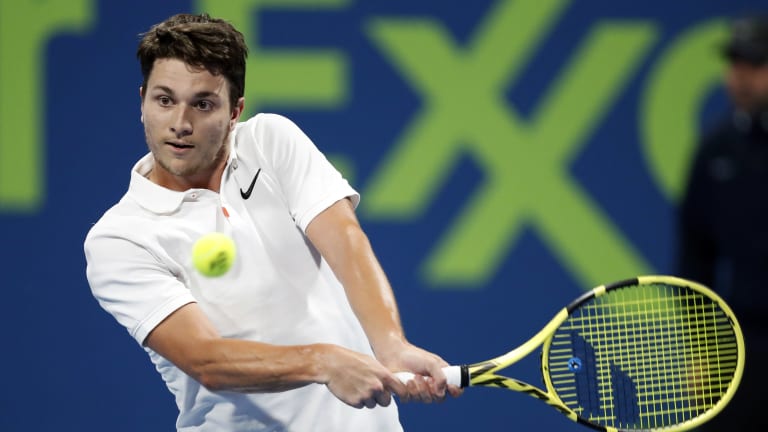ATP Doha, Qatar
Excited Kecmanovic upsets Tsonga in Doha for third career Top-30 win
By Jan 08, 2020ATP Doha, Qatar
Andrey Rublev wins Doha title over Jack Draper
By Feb 22, 2025ATP Doha, Qatar
Andrey Rublev credits his mental approach after beating Jack Draper to win Qatar Open
By Feb 22, 2025ATP Doha, Qatar
Andrey Rublev vs. Jack Draper: Where to Watch, Doha Preview, Betting Odds
By Feb 21, 2025ATP Doha, Qatar
ATP Doha Final Preview: Andrey Rublev vs. Jack Draper
By Feb 21, 2025ATP Doha, Qatar
Andrey Rublev 'happy' to have his level back with 10th ATP 500 final in Doha
By Feb 21, 2025ATP Doha, Qatar
Jiri Lehecka showed how high his ceiling can be by out-playing Carlos Alcaraz in Doha
By Feb 20, 2025ATP Doha, Qatar
Carlos Alcaraz needs three sets to oust Luca Nardi at Qatar Open
By Feb 19, 2025ATP Doha, Qatar
Seeds go five for five as Carlos Alcaraz fends off Luca Nardi to lead Doha quarterfinalists
By Feb 19, 2025ATP Doha, Qatar
Novak Djokovic says no pain in hamstring after Matteo Berrettini loss in Doha
By Feb 18, 2025Excited Kecmanovic upsets Tsonga in Doha for third career Top-30 win
Just one year ago, the 20-year-old Serb was still seeking his first ATP win, and now he's into the quarterfinals of the Qatar Open.
Published Jan 08, 2020
Advertising

Excited Kecmanovic upsets Tsonga in Doha for third career Top-30 win
© KARIM JAAFAR
Advertising

Excited Kecmanovic upsets Tsonga in Doha for third career Top-30 win